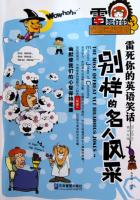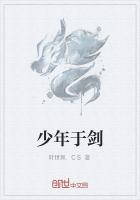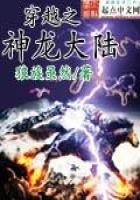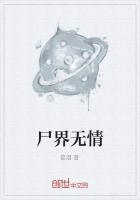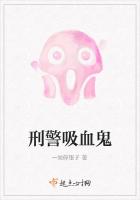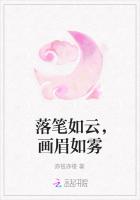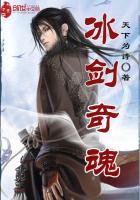The Bible shows the way to easy, happy living in many of its pages. It advises, "It is more blessed to give than to receive." Those who expect the most are apt to receive the least. I had expected much and was filled with fury because nothing in the outside world relieved my emptiness4 and despair. Nothing did, either, until I could face the anger and fury, the emptiness and despair, and slowly start to know such new feelings as compassion, conviction, control, calm. I learned, too, of reason—that judicious combination of thought and feeling that enables me to take more responsibility for myself and others, that allows me to slay the ghosts of the past.
For me there is much hard work ahead to achieve greater happiness. Yet, the very struggle I have put into achieving a measure of it makes happiness that much more dear.
我相信, 爱与被爱是每个人的渴望。一个人是否幸福,关键在于他是否拥有爱并能够接受爱。
在有些人看来,爱就是一种充满活力、渴望且极富戏剧性的情感,是占有一切的激情与欲望。而我认为,这种爱是极不成熟的爱:它是向他人的索求,而不是奉献。只有成熟的爱才能带来幸福,它是内心真挚情感的流露,能够接受并理解他人,给予对方温柔与体贴。它不索求服务,而是处处提供服务。
6年前,由于身患急性鼻窦炎,我几乎难以呼吸。胃部也常感不适,易恶心呕吐。失眠问题也一直困扰着我,即使我感到疲惫不堪却依然辗转难眠。可是,医生对我的病症所做的治疗毫不奏效,我的痛苦丝毫未减。绝望中,我尝试了心理疗法。很幸运的是,我找到了一位博学、热情的医生,他让我懂得了,能够相信自己与他人的意义所在。
我身体的疾病得以治愈,而更多的是我最终开始学会一门生活的哲学。我一直是一个循规蹈矩的人,虽然我并不相信那些教条与格言,但多年来,由于不敢质疑,我一直不假思索地将其视为生活的准则。然而我难以正常而平静地生活,总是坐立不安。最终,我受到了惩罚,病魔缠身,同时也得到了启示:必须对现状做出改变,否则将万事不顺。
为了改变现状,我需要得到帮助以面对自我。对我来说,“认识自己”并不是件简单的事。一生中,我选择了两个罪恶中较轻的一个:逃避自我,因为真相往往更为危险。曾经我以为,戴上面具,忘记面具下的一切,就能生存下去。然而,面具是虚假的掩护,我的内心决不肯永远缄默。最终这种情感占了上风,如果它不曾主宰我,我就依然得面对恐惧、愤怒、羡慕、仇恨、嫉妒和极其需要关注的情感。除了顺从自己的内心,我别无选择,当我意识到这一点时,我便更喜欢自己,也更爱他人。这并不是为了他人能给予我什么,而是我能给予他们什么。
如何能简单幸福地生活,《圣经》中的众多例子都告诉了我们。它建议:“施比受更有福。”那些期望最多的人,往往收获最少。曾经,我期望颇多,内心却充满了愤怒与狂躁,因为外界任何事物都无法填补我内心的空虚与绝望。一切都于事无补,直到我能够面对愤怒、狂躁、空虚与绝望,并慢慢地开始懂得同情、信仰、自制与平静这些新的情感。我也明白了,理智正是思想与情感最明智的结合,它能够让我为自己与他人承担起更多的责任,驱除往昔纠缠我的幽灵。
对我来说,要想更加幸福,还需付出更多艰辛的努力。但是,为获得一定程度的幸福而付出的艰辛努力,才使得幸福弥足珍贵。
人生的清单
On Peace of Mind
约叔亚·罗斯·李普曼 / Joshua Loth Liebman
Once, as a young man full of exuberant1 fancy, I undertook to draw up a catalogue of the acknowledged "goods" of life. As other men sometimes tabulate2 lists of properties they own or would like to own, I set down my inventory of earthly desirables: health, love, beauty, talent, power, riches, and fame.
When my inventory was completed I proudly showed it to a wise elder who had been the mentor and spiritual model of my youth. Perhaps I was trying to impress him with my precocious wisdom. Anyway, I handed him the list. "This", I told him confidently, "is the sum of mortal goods. Could a man possess them all, he would be as a god."
At the corners of my friend' s old eyes, I saw wrinkles of amusement gathering in a patient net. "An excellent list," he said, pondering it thoughtfully. "Well digested in contented and set down in not-unreasonable order. But it appears, my young friend, that you have omitted3 the most important element of all. You have forgotten the one ingredient, lacking which each possession becomes a hideous torment. "
"And what," I asked, peppering my voice with truculence, "is that missing ingredient ? "
With a pencil stub he crossed out my entire schedule. Then, having demolished my adolescent dream structure at a single stroke, he wrote down three syllables4: peace of mind. "This is the gift that God reserves for His special protégés, " he said.
"Talent and beauty He gives to many. Wealth is commonplace, fame not rare. But peace of mind—that is His final guerdon of approval, the fondest insignia of His love. He bestows it charily. Most men are never blessed with it; others wait all their lives—yes, far into advanced age—for this gift to descend upon them. "
曾经,当我是一个充满了丰富幻想的年经人时,着手起草了一份被公认为人生“幸福”的目录。就像别人有时会将他们所拥有或想要拥有的财产列成表一样,我将世人希求之物列成表:健康、爱情、美丽、才智、权力、财富和名誉。
当我完成清单后,我自豪地将它交给一位睿智的长者,他曾是我少年时代的良师和精神楷模。或许我是想以此来加深他对我早熟智慧的印象。无论如何,我把单子递给了他。我充满自信地对他说:“这是人类幸福的总和。一个人若能拥有这些,就和神差不多了。”
在我的朋友老迈的眼角处,我看到了感兴趣的皱纹,汇聚成一张耐心的网。他深思熟虑后说:“是一张出色的表单,内容整理详细,记录顺序也合理。但是,我的年轻朋友,好像你忽略了最重要的一个要素。你忘了那个要素,如果缺少了它,每项财产都会变成可怕的折磨。”
我立即暴躁地逼问:“那么,我遗漏的这个要素是什么?”
他用一小段铅笔划掉我的整张表格。在一拳击碎我的少年美梦之后,他写下三个单词:心之静,“这是上帝为他特别的子民保留的礼物。”他说道。
“他赐予许多人才能和美丽。财富是平凡的,名望也不稀有,但心灵的宁静才是他允诺的最终赏赐,是他爱的最佳象征。他施予它的时候很谨慎。多数人从未享受过,有些人则等待了一生——是的,一直到高龄,才等到赏赐降临他们身上。”
记忆中的伤害与恩泽
Sand And Stone
佚名 / Anonymous
The story goes that two friends were walking through the desert. During some point of the journey they had an argument1, and one friend slapped the other one in the face.
The one who got slapped was hurt, but without saying anything, wrote in the sand, "Today my best friend slapped me in the face."
They kept on walking until they found an oasis, where they decided to take a bath. The one who had been slapped got stuck in the mire and started drowning, but the friend saved him.
After he recovered from the near drowning, he wrote on a stone: "Today my best friend saved my life."
The friend who had slapped and saved his best friend asked him, "After I hurt you, you wrote in the sand and now you write on a stone. Why?"
The other friend replied, "When someone hurts us we should write it down in sand where winds of forgiveness can erase it away. But when someone does something good for us, we must engrave2" it in stone where no wind ever erases3 it."
LEARN TO WRITE YOUR HURTS IN THE SAND AND TO CARVE YOUR BENEFITS IN STONE.
They say it takes a minute to find a special person, an hour to appreciate them, a day to love them, but an entire life to forget them.
Send this phrase4 to the people you' ll never forget. It' s a short message to let them know that you' ll never forget them.
Take the time to live.
有这样一则故事:两个朋友徒步穿行沙漠。旅行途中,他们发生了争执。其中一人打了另一人一记耳光。
被打耳光的那个人很伤心,但他沉默不语,只在沙地上写道:“今天,我最好的朋友打了我一耳光。”





